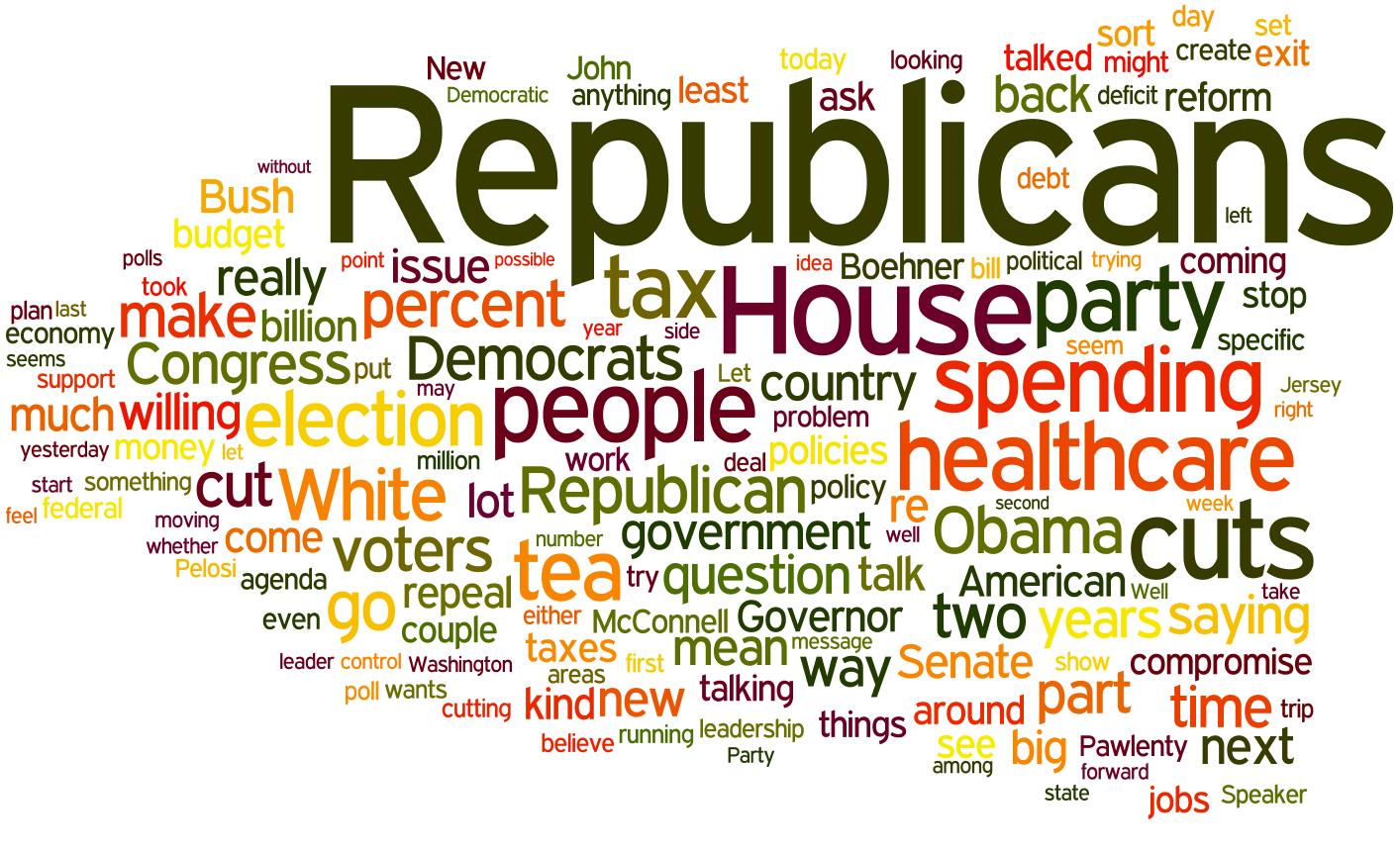Elections have a way of setting agendas. While the candidates elected last week will not actually wield power until January, the political world is already adopting the language of the midterms.
That's especially true for political reporters, who frame the questions thrown at the White House's freshly shellacked podium.
To get a snapshot of the new language, I just counted up the most frequent words that reporters used in their questions during three major post-election sessions. (I used the day-after press conference with President Obama, a similar outing with press secretary Robert Gibbs, and a trio of Sunday talk shows -- Meet The Press, State of the Union and Fox News Sunday).
Below is a snapshot of the New Change created through the website Wordle.
A few trends jump out here:
Down with GOP: Despite all the media coverage of the Tea Party, these reporters overwhelmingly frame the results as a partisan victory for Republicans, not a special triumph for Tea Party Republicans. (It's hard to even find "tea" in this mix -- on the lower left.)
There is no focus on a single Republican leader. The GOP ran the election as a "referendum on Obama" and the economy, and these press questions suggest that line is sticking. There is no close-up for a top Republican, be it Boehner (a dot under the "Republicans" line), McConnell (tucked under "tea" and "question") or Pawlenty (in the lower right corner between "big" and "next").
In media coverage about the midterms, of course, individual GOP candidates drew lots of attention. After Obama, four of the five top newsmakers in the campaign's homestretch were Republicans, according to data from the Pew Research Center. The initial reaction among Washington reporters, however, is not focused on GOP leaders. That could shift quickly as Boehner and Obama clash, or meet up for slurpee summits.
Shut it Down. Finally, on policy, these journalists clearly see the election results as catalyzing a challenge to Obama's domestic spending priorities. The recurring battle words are spending, healthcare and cuts. Notably, however, "jobs" and "Social Security" barely register.
With research by Devon Bancroft.
Ari Melber writes for The Nation, where this piece first appeared. Click here for Ari Melber on Facebook.
